


Thank you for signing up for the inaugural WLA Research Conference. Please read the following notice for a pleasant experience.
All participants need to register for the conference online at our official website and pay the registration fee and/or the banquet fee.
The registration fee is $200.00 per person and $50.00 per person for the banquet fee.
You can purchase up to 5 extra tickets with each having their contact information.
A full refund is available before July 20, 2020 (Beijing Time). After this date, refunds will not be provided.
You are welcome to bring your research poster and display at the Poster Session of WRC.
You are encouraged to read the Poster Presenter Guidelines to help you better prepare for the session.
The Best Poster Prize will be awarded at the closing of the meeting on July 28.
Please bring your ID document to pick up your badge and meeting materials at the Registration table on July 26, 2023, 10 am - 2 pm.
Please wear your badge during the meeting. Contact WLA Labs staff immediately if lost, and temporary one will be provided.
Meeting materials include a program book, a note pad, a pen and a WRC bag.
English is the working language of the meeting. No interpretation service is provided.
The venue of the meeting is La Salle Versailles, Shanghai Science Hall. You can take metro line 13, at Middle Huaihai Road, or drive here.
The parking lot is at right side of the building.
We recommend the following 2 premium hotels nearest to the meeting that can offer you a delightful experience:
a) Okura Garden Hotel Shanghai, five stars: No. 58, Maoming South Road
b) Intercontinental, five stars: No. 118, Ruijin 2nd Road
General inquiry, please contact info@wlalabs.com.cn.
In case of emergency, please contact 021-655 7670
Welcome to visit the World Laureates Association Laboratories (WLA Labs, hereinafter referred to as "We/us/our"). Thank you for choosing and accepting our services. The Term of Use (the "Agreement") is an agreement between you and the WLA Labs for the use of https://www.wrc.org.cn (the "Website") and/or mobile client, including registration, login, accessing certain content, uploading or otherwise submitting content and acceptance of related services.
1.1 In order to provide you with better services, please read the contents of this Agreement carefully. If you have any questions about the content of this Agreement or the information on the page, or do not agree with this Agreement, please do not proceed to the next step. If you click to confirm and start using our services, it means that you have fully understood this Agreement and agreed to be a party to this Agreement to accept all of the terms and conditions set forth in this Agreement and any other agreement or document incorporated herein by reference (including but not limited to the "Privacy Policy"). If you do not wish to accept the terms and conditions of this Agreement, PLEASE DO NOT proceed with the registration.
1.2 If you are a person without civil capacity or with limited civil capacity, please inform your guardian, and read this Agreement and use our services under the guidance of your guardian.
1.3 If you are not a user in the People's Republic of China (for the purpose of this Agreement, excluding Hong Kong S.A.R., Macau S.A.R., and Taiwan Region), you must also comply with the laws of your country or region, and you confirm that entering into and executing this Agreement does not violate the laws and regulations of the country or region where you belong, live, or conduct business activities or other businesses.
2.1 Website: refers to https://www.wrc.org.cn.
2.2 Account: refers to the login account that we open for you after you obtain the user ID and pass the identity verification. If you have not completed the identity verification, you cannot participate in the WLA Research Conference online or offline activities.
2.3 Personal information: refers to various information recorded electronically or in other forms that can identify a specific natural person independently or in combination with other information or reflect the activities of a specific natural person, including but not limited to the name, date of birth, ID number, email address, and contact information.
2.4. Identity elements: refers to the information elements we use to identify your identity, including but not limited to your user ID, login account number, password, SMS verification code, phone number and ID number.
2.5 Authorities: refers to entities that have the authority to request inquiries, suspending and other measures in accordance with laws and regulations, including but not limited to public security agencies, procuratorates, courts, customs, and tax agencies, etc.
3.1 When you accept our service, you need to complete the registration of the website account by submitting your name, mobile number and email address. If you need to buy tickets and participate in offline activities, you also need to provide us with personal information for citizen real-name verification, including your ID number, company, position, and personal photos. When you register and use our services, you should provide us with true, accurate, complete, legal, and valid information, and you are obliged to maintain and update your information in a timely manner.
3.2 You understand and promise that the account you set up shall not violate national laws and regulations and the provisions of this Agreement, your account name and other registration information shall not contain illegal or negative information, and you may not open an account in the name of another person without the permission of others. We shall have the right to review the information you submitted.
3.3 Your account is only for your own use. Without our written consent, it is prohibited to give, borrow, rent, transfer, sell or otherwise permit others to use the account in any form. If we find out or have reasonable grounds to believe that the user is not the initial registrant of the account, in order to protect the security of the account, we shall have the right to immediately suspend or terminate the provision of services to the registered account, or cancel the account.
3.4. You shall be responsible for maintaining the security of your personal accounts and passwords,shall not disclose your accounts and passwords to others under any circumstances, and assume full legal responsibility for the activities you engage in the name of the registered account. If you find that someone else uses your account without permission or any other security leaks occur, you shall notify us immediately.
3.5 After you complete the website account registration, log in and conduct reasonable and necessary identity verification, you can browse and modify the personal information submitted by yourself at any time. You understand and agree that for security and identification considerations, you may not be able to modify the initial registration information and other verification information provided during registration. You can also apply to cancel your account. We will assist you in canceling your account or deleting relevant data after completing reasonable and necessary verification such as verification of personal information, security status, and device information.
4.1. In order to provide you with better services, we may set up third-party links on our website. It is up to you to decide whether to access these links. We cannot guarantee the authenticity, accuracy, and reliability of the information provided by the third party. Any disputes or damages arising from third-party links have nothing to do with us, and we do not assume any responsibility.
4.2. When users use specific services provided by us (such as ticket purchases), we will support users' needs through third-party systems. When you use the services provided by a third party, in addition to complying with the provisions of this Agreement, you should also comply with the third party's user agreement.
You shall be responsible for your use of our services. If we have reason to believe that your behavior violates or may violate laws and regulations or this Agreement, we can independently judge and deal with it, and we shall have the right to terminate the provision of services to you without prior notice, and to pursue relevant legal liabilities. You must not commit the following acts when using the services we provide:
5.1 Produce, transmit, or publish any illegal or criminal information with a nature of intimidation, harassment, or slander against others;
5.2 Use any plug-in, tag-on service, system, or third-party tool that is not authorized or licensed by us to interfere, destroy, modify or otherwise affect the normal operation of related services;
5.3 Activities that endanger network security, such as illegal intrusion into the network, interference with normal network functions, and theft of network data;
5.4 Without permission, attempt to detect, scan, test the weakness of our system or network, or perform other behaviors that disrupt network security;
5.5 Reverse engineer, reverse assemble, compile, or otherwise attempt to discover the source code of our website or program;
5.6 Malicious registration of website accounts, including but not limited to frequent and bulk registration of accounts;
5.7 Commit other acts in violation of laws and regulations or this Agreement.
5.8 Publish, transmit, disseminate, or store content that violates the laws and regulations of the People's Republic of China, including but not limited to: violating the basic principles established by the Constitution; endangering national security, divulge state secrets, subvert state power and undermine national unity; damaging national honor and interest; inciting national hatred and ethnic discrimination, and destroy national unity; undermining national religious policies and promote cults and feudal superstition and any other content prohibited by the law and administrative regulations.
We fully respect and protect users' privacy and work with you to protect your personal information. During using this website, you may need to provide relevant personal information so that we can provide you with better services and corresponding technical support. We will use encryption technology, anonymization, and other technical measures that match the service and other security measures to protect your personal information. For more information about the protection of users' personal information, please refer to the "Privacy Policy."
If either party of this Agreement is unable to perform or fully perform the agreed obligations, the breaching party shall be liable for breach of contract. We are exempt from liability if we are unable to provide services normally due to the following reasons:
7.1 Our system is shut down for maintenance or upgrade;
7.2 Force majeure such as typhoon, earthquake, flood, lightning or terrorist attack;
7.3 The software and hardware, communication lines, or power supply lines of your electronic equipment are malfunctioning;
7.4 Your improper operation or using our services in a way that is not authorized or approved by us;
7.5 Viruses, Trojan, malicious program attacks, network congestion, system instability, system or equipment failures, communication failures, power failures, bank fault, third-party service defects, or government actions.
Notwithstanding the foregoing, we will take reasonable actions to actively promote the resumption of normal services.
8.1 We lawfully own the intellectual property rights, including but not limited to trademark rights, patent rights, copyrights, trade secrets, etc., embodied in works, pictures, files, information, materials, website structure, website page arrangement, website design.
8.2 Without our written consent, it is not permitted to use, modify, decompile, reproduce, publicly disseminate, change, distribute, issue, or publicly publish the website program or content.
8.3 Protecting intellectual property rights is your obligation. If there is any violation, you shall be liable for damages.
9.1 In order to provide you with better services, we will update and improve the service from time to time, and timely revise this Agreement. These amendments constitute part of this Agreement and have the same force and effect as this Agreement. Without your explicit consent, we will not reduce your rights under the Agreement as presently in effect.
9.2 If we modify this Agreement, we will announce it in advance through a website announcement and obtain your consent through a pop-up window. If you cannot agree to the content of the modified Agreement, you shall have the right to stop using the relevant services. If you continue to use our services after this policy update takes effect, you will be deemed to have fully read, understood and accepted the updated Agreement, and are willing to be bound by the updated Agreement.
The validity, interpretation, modification, execution, and dispute resolution of this Agreement shall be governed by the laws of the People's Republic of China. This Agreement is written in Chinese and English versions. In case understandings are different, it will be subject to the understanding in Chinese finally. In the event of a dispute arising in the performance of this Agreement, both parties shall negotiate and resolve it. If either party of this Agreement is unwilling to negotiate or the negotiation fails, either party shall have the right to submit the dispute to Shanghai International Economic and Trade Arbitration Commission for arbitration in accordance with the arbitration rules in effect at that time. The arbitration award is final and binding on both parties.
If you have any questions, comments, and suggestions, please contact us through the following contact information:
Email: info@wlalabs.com.cn
We will properly handle your questions. Normally, we will reply within 10 working days after verifying your identity.
Last updated: May 18, 2023
The WLA Labs (hereinafter referred to as "We/us/our") fully respects and protects the privacy of users. We collect, store, protect, use or share your personal information in accordance with this Privacy Policy (hereinafter referred to as "Policy"). We recommend that you read the Policy in its entirety to help you understand how to protect your privacy. In order to make you fully understand the Policy, the terms of the Policy that have or may have a significant impact on your interests have been marked in bold for your attention. By clicking to confirm or start using our services, you will be deemed to have fully understood the Policy and agree that we can use and protect your personal information legally in accordance with the Policy.
When you access our website or use our services, you may voluntarily provide us with personal information and we also collect some of your information. The scope of information we collect depends on the type of service users need, including but not limited to:
1.1. When you apply to register your website account, you need to provide us with relevant personal information, including your name, mobile phone number and email address.
1.2. If you would like to purchase tickets and participate in offline conference activities, you also need to provide us with personal information used for the real-name authentication of citizens, including an ID number, company name, position, and personal photo.
1.3. To protect your account security, when you access our website or use our services, your access data may be recorded automatically, such as your browsing records, visiting date and time, browser information, hardware, and software functions and network link information (IP address, port, network protocol, etc.)
1.4. In addition to the above information, we may collect other information about you for the reasonable purpose of improving the service quality, including information you post on the website, information you provide when contacting our customer service, answers sent to us when taking questionnaires, etc.
Your information is stored on servers located in China. For security and backup purposes, we may store your information and data on storage media that we purchase, lease or otherwise use from a qualified third party (e.g., Alibaba Cloud). In this case, we will require the third party to keep your information strictly confidential. At present, we will not store the above information outside of China. If we transmit and store the information outside of China, we will comply with the relevant national regulations and seek your consent.
We attach great importance to your personal information security, and will endeavor to take reasonable security measures (including technical and management means) to protect your personal information and prevent the personal information provided by you from being accessed, publicly disclosed, used, modified, damaged, lost or leaked inappropriately.
3.1. We protect your personal information with encryption technology, anonymous processing and relevant reasonable and feasible means that are not inferior to those adopted by the industry peers, and use security protection mechanisms to prevent your personal information from being attacked maliciously.
3.2. We set up a special security department, security management system, and data security procedures to protect your personal information security. We implement a strict data usage and access system to ensure that only authorized personnel can access your personal information, and conduct security audits on data and technology in due course.
3.3. Although the above reasonable and effective measures have been taken and the standards required by relevant laws and regulations have been complied with, please be noted that, due to technical limitations and possible malicious means, it is not always possible to ensure 100% security of information in the Internet industry, even if we try our best to strengthen the security measures. We will do our best to ensure the security of the personal information you provide to us.
3.4. We have developed emergency plans and we will immediately launch them in case of users' information security incidents, in an effort to prevent the impact and consequences of these security incidents from expanding. Once a user information security incident occurs, we will promptly inform you of the situation, possible impact of the incident, the disposal measures we have taken or will take, and recommendations that how you can prevent and reduce risks independently in accordance with the requirements of laws and regulations. At the same time, we will report the handling of user information security incidents in accordance with the requirements of regulatory authorities.
3.5. Please be sure to take good care of your login name and other identity information. When you use our services, we will identify you by your login name, email address and other identity information. Once you disclose the above information, you may suffer losses and may bear adverse legal consequences. If you find that your login name or other identity information may or have been leaked, please contact us immediately so that we can take appropriate measures in a timely manner to reduce the corresponding losses.
In accordance with the requirements of national laws and regulations regarding the lawful and reasonable use of personal information, we will use your relevant information for the following purposes:
4.1. To provide you services of video on demand, purchasing tickets and other services, and maintain, and improve the relevant service content.
4.2. To verify the accuracy of the information and if necessary, verify with a third party. For example, verify the identity information you submitted to us with an authentication service organization.
4.3. In order to let you know about the status of our various services, we will push you the conference agenda information, attendance guide or other information.
4.4. To conduct comprehensive statistics, analysis or processing of users' identity information and access information. We may, for publicity or marketing purposes, use or disclose the processed information. For example, we may count new users who have signed up for an account in a certain period of time, and provide push services to these new users.
4.5. To prevent or prohibit illegal activities.
4.6. Other purposes permitted by you.
5.1. If it is necessary to share your information with any third party in order to provide services to you, we will assess the legality, legitimacy and necessity of collecting information by the third party. We will require third parties to protect your information and to strictly comply with all applicable laws, regulations and regulatory requirements. Meanwhile, we will, in accordance with the requirements of laws and regulations, obtain your consent or confirm that the third party has obtained your consent by the way of agreement confirmation, pop-up window reminder, etc.
5.2. If we need to obtain your information from a third party in order to provide services to you, we will ask the third party to state the source of information and guarantee the legality of the information provided; if the personal information processing activities that we need to carry out in order to conduct any business are beyond the scope of original authorization when you provided personal information to the third party, we will obtain your additional explicit consent.
6.1. To make your website access easier, when you visit our site and use our services, we may identify you through a small data file, so as to help you avoid repetitive steps to enter your registration information, or to help you determine the security of your account. These data files may be cookies, flash cookies, or other local storage provided by your browser or associated application (collectively referred to as "cookies").
6.2. Please understand that some of our services can only be implemented by using cookies. If your browser or browser add-on services allow it, you can modify your acceptance settings of cookies or refuse to use cookies, but in some cases, this may affect your ability to access our website and use our services securely.
7.1. In order to provide you with better services, we will update and improve our service in due course, and revise the Policy at the same time. These amendments constitute a part of the Policy itself and have the same legal force as the Policy. Without your explicit consent, we will not reduce your rights under the Policy for the time being in force.
7.2. If we revise the Policy, we will announce it in advance by means of the website announcement, and obtain your consent in the form of a pop-up window. If you don't agree to the revised version, you may stop using relevant services. If you click to confirm and continue to use our services after the revised policy takes effect, you will be deemed to have fully read, understood and accepted the updated policy, and are willing to be bound by the updated policy.
We may be linked to other websites not maintained by us. We do not control and are not responsible for the content of and policies governing the use of those websites not maintained by us. The inclusion of any link to such websites does not imply approval of or endorsement by us of the websites or the content thereof.
If you have any questions, comments, and suggestions, please contact us through the following contact information:
Email: info@wlalabs.com.cn
We will properly handle your questions. Normally, we will reply within 10 working days after verifying your identity.
Last updated: May 18, 2023


You've already registered for this Conference. Please find more details in My Event .Thank you!
You've already registered for this Conference. Please find more details in My Event. Thank you!
Aloft Shanghai Zhangjiang Haike (550 Haike Road), Shanghai, China
WLA Shanghai Center
WLA Labs
1.5-day, single-stream, on-site symposium
October 15-16, 2023
250 (advanced online registration + on-site registration required)
Registration fee (including reception, lunch buffet and lunch bag):
for Students, 1500 RMB (210 USD)
for Academic Staff, 2500 RMB (350 USD)
Banquet fee(optional): 350 RMB (50 USD)
The development of bioorthogonal and click chemistry has not only provided enabling tools to study fundamental problems in biology but also facilitated the invention of translational technologies for the treatment of human diseases. In testament to the importance of this field, the 2022 Nobel Prize in Chemistry was awarded to scientists engaged in related research. To promote the further development of frontier interdisciplinary research and fulfill the missions of the World Laureates Association (WLA) to "promote basic science, advocate for international cooperation, and support the development of youth," an academic conference on bioorthogonal and click chemistry has been initiated. This symposium, spanning one and a half days, will feature experts and young researchers to share their latest breakthroughs in this field.
The 2023 WLA Research Conference on Bioorthogonal and Click Chemistry will take place from October 15 to 16, 2023, in Shanghai and will be hosted by the WLA Shanghai Center and the WLA Labs (World Laureates Association Laboratories). The Chair of this event is Prof. K. Barry SHARPLESS of Scripps Research, who won the 2001 and 2022 Nobel Prizes in Chemistry for his groundbreaking research in developing "click chemistry," an ingenious method for building molecules. The Co-Chair is Prof. DING Kuiling, President of Shanghai Jiao Tong University and Academician of the Chinese Academy of Sciences.
The Conference will feature active researchers in chemical biology, glycobiology, molecular biology, organic chemistry, pharmaceutical chemistry, and related areas of bioorthogonal and click chemistry. There will be a keynote session with 2 prestigious speakers, Prof. K. Barry SHARPLESS and Prof. TANG Ben Zhong; and 4 plenary sessions, each for 120 minutes with 4 invited speakers. The Conference highly encourages the latest unpublished results.
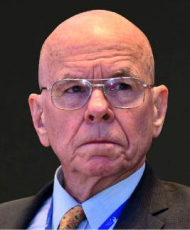
Chair
Scripps Research, U.S.A.
2022&2001 Nobel Laureates in Chemistry
W.M. Keck Professor of Chemistry, Scripps Research
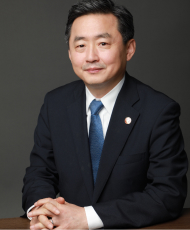
Co-Chair
Shanghai Jiao Tong University, CHINA
Academician, Chinese Academy of Sciences; President, Shanghai Jiao Tong University
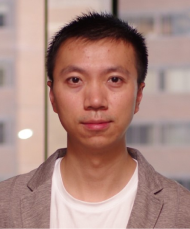
Professor, Department of Molecular Medicine, Scripps Research
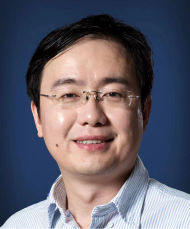
Professor, Institute of Translational Medicine, Shanghai Jiao Tong University; Distinguished Professor, WLA Labs
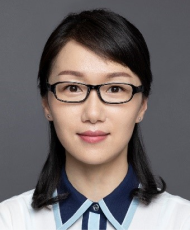
Associate Professor, iHuman Institute, School of Life Science & Technology, ShanghaiTech University

WLA Technology Transfer Center, CHINA

2022 & 2001 Nobel Laureates in Chemistry
W.M. Keck Professor of Chemistry, Scripps Research
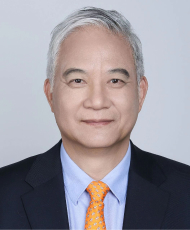
Academician, Chinese Academy of Sciences; Professor, Dean, School of Science and Engineering, The Chinese University of Hong Kong, Shenzhen
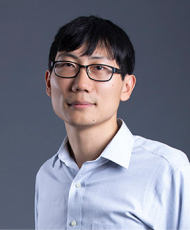
Assistant Professor, Department of Chemistry, Westlake University
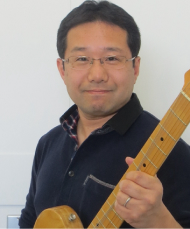
Professor, School of Materials and Chemical Technology, Tokyo Institute of Technology; Chief Scientist, Biofunctional Synthetic Chemistry Laboratory, RIKEN
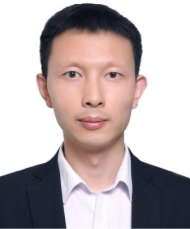
Professor, School of Chemistry and Chemical Engineering, State Key Laboratory of Chemo/Bio-Sensing and Chemometrics, Hunan University

Professor, Institute of Translational Medicine, Shanghai Jiao Tong University; Distinguished Professor, WLA Labs
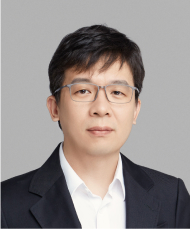
Professor, Dean, College of Chemistry and Molecular Engineering, Peking University
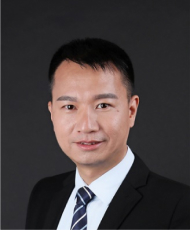
Principal Investigator, Shanghai Center for Systems Biomedicine, Shanghai Jiao Tong University
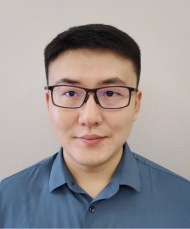
CEO, Founder, Glyco-therapy Biotechnology Co., Ltd.

Professor, Department of Molecular Medicine, Scripps Research
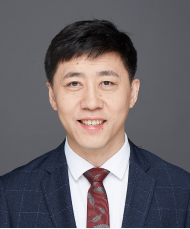
Professor, College of Chemistry and Molecular Engineering, Peking University
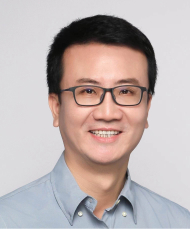
Professor, Chair, Department of Chemical Biology, College of Chemistry and Molecular Engineering, Peking University
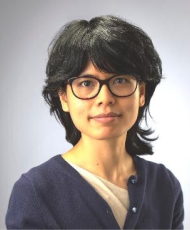
Associate Professor, Swiss Federal Institute of Technology Lausanne
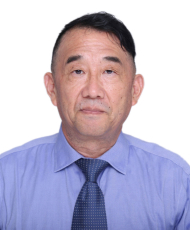
COO, VP, Cheerland Biotechnology Co., Ltd.
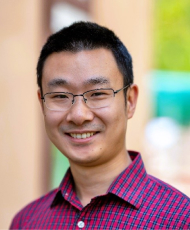
Associate Professor, Department of Chemistry, University of California, Riverside

Associate Professor, iHuman Institute, School of Life Science & Technology, ShanghaiTech University
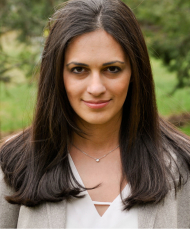
Assistant Professor, Bioengineering, Northeastern University

Professor, Department of Pharmaceutical Chemistry, Cardiovascular Research Institute, Helen Diller Family Comprehensive Cancer Center, University of California San Francisco
Registration and Check-in (Aloft Shanghai Zhangjiang Haike)
WLA Labs Tour (No.4218 Jinke Road, Pudong New District)
Reception (Aloft Shanghai Zhangjiang Haike)
Registration and Check-in
Opening and Welcome: WU Peng (Host)
Professor, Department of Molecular Medicine, Scripps Research
Group Photos: All speakers and participants
Opening Remarks: Michael LEVITT (Online)
2013 Nobel Laureate in Chemistry
Vice-Chair, World Laureates Association
Special Remarks: DING Kuiling
Academician, Chinese Academy of Sciences;
President, Shanghai Jiao Tong University
Special Remarks: K. Barry SHARPLESS
2022&2001 Nobel Laureates in Chemistry;
W.M. Keck Professor of Chemistry, Scripps Research
Keynote Speech: TANG Ben Zhong
Academician, Chinese Academy of Sciences;
Professor, Dean, School of Science and Engineering, The Chinese University of Hong Kong, Shenzhen
Topic: Wonder Chemistry on/in/of Water
Session 1: New Chemistry And Tools
Moderator: DONG Jiajia
Speaker #1 WU Mingxuan
Assistant Professor, Department of Chemistry, Westlake University
Topic: Development of New Sortase-Mediated Methods for Investigation of Histone Modifications
Speaker #2 Katsunori TANAKA
Professor, School of Materials and Chemical Technology, Tokyo Institute of Technology;
Chief Scientist, Biofunctional Synthetic Chemistry Laboratory, RIKEN
Topic: Therapeutic in Vivo Synthetic Chemistry
Coffee Break
Speaker #3 GAO Bing
Professor, School of Chemistry and Chemical Engineering, State Key Laboratory of Chemo/Bio-Sensing and Chemometrics, Hunan University
Topic: S(VI)-C Ligation Through Radical and Enantioselective Reactions
Speaker #4 DONG Jiajia
Professor, Institute of Translational Medicine, Shanghai Jiao Tong University; Distinguished Professor, WLA Labs
Topic: The FSO2N3, an Unexpected Journey
Lunch Break
Session 2: Click Chemistry Tools For Studying Glycosylation
Moderator: WU Peng
Speaker #1 CHEN Xing
Professor, Dean, College of Chemistry and Molecular Engineering, Peking University
Topic: Deciphering the Glycocode by Bioorthogonal and Click Chemistry
Speaker #2 PENG Wenjie
Principal Investigator, Shanghai Center for Systems Biomedicine, Shanghai Jiao Tong University
Topic: Targeting Tumor Cells via Siglec High Affinity Ligands on Multivalent Platforms
Speaker #3 YANG Yi
CEO, Founder, Glyco-therapy Biotechnology Co., Ltd.
Topic: Chemoenzymatical Remodeling of Fc-Glycans for Construction of Multi-Specific Antibody Conjugates
Speaker #4 WU Peng
Professor, Department of Molecular Medicine, Scripps Research
Topic: Development of T-Cell Based Immunotherapies for the Treatment of Solid Tumors
Poster Session / Coffee Break
Session 3: New Tools for The Investigation and Control of Protein Functions
Moderator: WU Peng
Speaker #1 WANG Chu
Professor, College of Chemistry and Molecular Engineering, Peking University
Topic: Chemical Proteomic Profiling of Functional Modifications by Reactive Metabolites
Speaker #2 CHEN Peng
Professor, Chair Department of Chemical Biology, College of Chemistry and Molecular Engineering, Peking University
Topic: Bioorthogonal Cleavage Chemistry for Protein Activation in Space and Time
Speaker #3 Yimon AYE
Associate Professor, Swiss Federal Institute of Technology L
Topic: What We Do in the Dark: Illuminating Functional Responsivity, Signaling Activity, & Druggability of the Local Interactome in Living Systems
Speaker #4 John ZHANG
COO, VP, Cheerland Biotechnology Co., Ltd.
Topic: Next-Generation Intelligent Manufacturing Technology for Biological Products
Banquet: WLA Click Night (Speakers, WLA key staff & Registered
Registration and Check-in
Session 4: New Tools for Imaging And Probing Nucleic Acids, Protein and Receptor Signaling
Moderator: SHUI Wenqing
Speaker #1 XUE Min
Associate Professor, Department of Chemistry, University of California, Riverside
Topic: Accessing the 3D-Diversifiable Chemical Space With in Situ Click Strategies
Speaker #2 SHUI Wenqing
Associate Professor, iHuman Institute, School of Life Science & Technology, ShanghaiTech University
Topic: GLP-1 Receptor: What Can We Do After Solving Its Structures?
Poster Session / Coffee Break
Speaker #3 Sara H. ROUHANIFARD
Assistant Professor, Bioengineering, Northeastern University
Topic: DNA-Enhanced CuAAC Ligand Enables Live-Cell Detection of Intracellular Biomolecules
Speaker #4 WANG Lei
Professor, Department of Pharmaceutical Chemistry, Cardiovascular Research Institute, Helen Diller Family Comprehensive Cancer Center, University of California San Francisco
Topic: New Covalent Bonding Ability for Proteins
Poster Prize Announcement
Closing Remarks: TANG Ben Zhong
Academician, Chinese Academy of Sciences;
Professor, Dean, School of Science and Engineering, The Chinese University of Hong Kong, Shenzhen
Lunch bag
WLA Labs Tour (No.4218 Jinke Road, Pudong New District)


Keynote Speech:
Wonder Chemistry on/in/of Water
October 15, 2023 / 09:20 - 10:20 A.M.

Session 1:
New Chemistry And Tools
October 15, 2023 / 10:20 - 12:30 P.M.

Session 2:
Click Chemistry Tools For Studying Glycosylation
October 15, 2023 / 01:30 - 03:30 P.M.

Session 3:
New Tools for the Investigation and Control of Protein Functions
October 15, 2023 / 04:00 - 05:45 P.M.
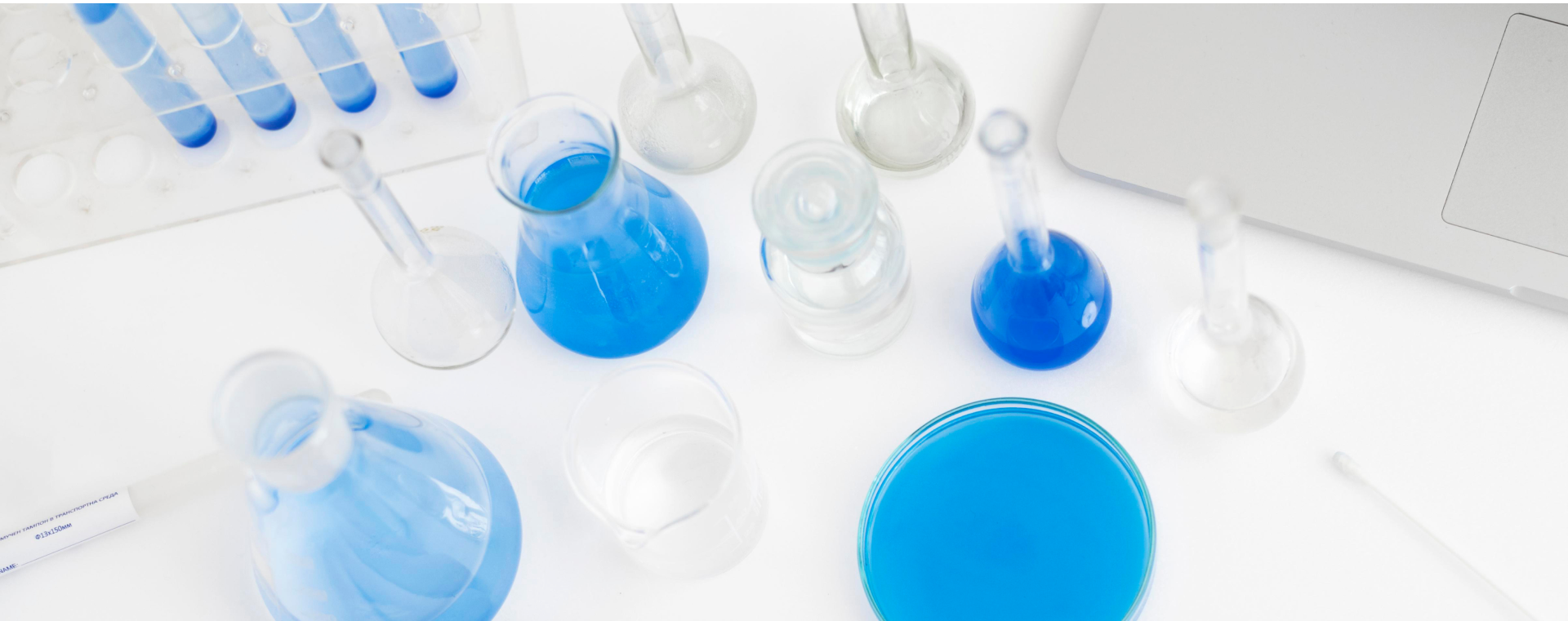
Session 4:
New Tools for Imaging And Probing Nucleic Acids, Protein and Receptor Signaling
October 16, 2023 / 09:00 -11:30 A.M.
KONG Bo(孔浡), SONG Chenguang(宋晨光),
XU Fu(徐甫), PAN Yu(潘宇),
WU Meng(吴梦),
LIU Xinwen(刘馨文),
TANG Fuqi(唐富起), XUE Lu(薛鲁),
YUN Yun(云芸), WANG Dan(王丹),
XIA Shuang(夏爽),SONG Tao(宋涛)
LI Wenjie(李文杰), WEN Bin(文斌),
WANG Meng(王萌), CHEN Yue(陈悦),
XU Shuaiming(徐帅明), GUO Meng(郭猛),
MA Ledong(马乐冬),
CHENG Zhihua(程志华),
PENG Kun(彭昆)

2022&2001 Nobel Laureates in Chemistry
W.M. Keck Professor of Chemistry, Scripps Research
Among a newer generation of scientists representing the entire chemical spectrum, from chemical engineering and materials to chemical biology, K. Barry Sharpless is known for click chemistry, a term he coined in 1998. Inspired by the complexity nature achieves from a handful of building blocks, Sharpless started actively looking in the mid-90s for a way to discover new chemical connectivity and reactivity. Click chemistry did not gain momentum until his group's discovery of CuAAC (the copper-catalyzed azide-alkyne cycloaddition), a near-perfect reaction (2002). Recently the Sharpless group discovered SuFEx, also near-perfect for click chemistry. In concert with the thiol-ene reaction, these three make click chemistry a far-reaching method for drug discovery, chemical biology, and materials science.
In 1963, K. Barry Sharpless graduated from Dartmouth College, where he was introduced, most fortuitously, to the wonders of chemistry by T. A. Spencer. Following graduate research with E. E. van Tamelen at Stanford University, Sharpless completed postdoctoral studies with J. P. Collman, also at Stanford, and at Harvard University with Konrad Bloch.
Sharpless set up his own laboratory in 1970 at the Massachusetts Institute of Technology. Except for several years in the 1970s when he was a member of Stanford’s chemistry faculty, Sharpless remained at MIT until moving to the Scripps Research Institute (TSRI) in 1990. At TSRI he is a W. M. Keck Professor of Chemistry and a member of the Skaggs Institute for Chemical Biology.

Academician, Chinese Academy of Sciences; President, Shanghai Jiao Tong University
Ding Kuiling is a deputy to the 14th National People's Congress (NPC). He concurrently served as the Executive Director of the Chinese Chemical Society (CCS), Vice President of the China Industry-University-Research Institute Collaboration Association (CIUR), and Vice Chairman of the Standing Committee of the Shanghai Association for Science and Technology (SAST). He previously held several positions at the Shanghai Institute of Organic Chemistry (SIOC) in the Chinese Academy of Sciences, including Director, Deputy Director, Chairman of the Trade Union, Deputy Secretary of the Party Committee, and Secretary of the Discipline Inspection Commission. Then he served as Vice President of ShanghaiTech University, Dean of ShanghaiTech Colleges, and member of the Party Standing Committee, and Executive Vice President of Shanghai Jiao Tong University. He is mainly engaged in the research of asymmetric reactions and green organometallic chemistry. He has proposed and successfully applied new concepts and methods of chiral catalyst design, and developed new chiral ligands and catalysts with characteristic frameworks.

Professor, Department of Molecular Medicine, Scripps Research
Wu Peng is a Professor in the Department of Molecular Medicine. Dr. Wu received his doctorate from the Scripps Research in 2005 under the guidance of Prof. K. Barry Sharpless. From August 2005 to September 2008, Dr. Wu was a postdoctoral fellow in the group of Prof. Carolyn R. Bertozzi at the University of California, Berkeley. There, he combined his interests in bioorthogonal chemistry and biotechnology by developing a method for site-specific modification of monoclonal antibodies using a genetically encoded aldehyde tag. The research in the Wu laboratory integrates synthetic chemistry with glycobiology to explore the cellular and molecular mechanisms that control immune responses toward cancer and human pathogens.

Professor, Institute of Translational Medicine, Shanghai Jiao Tong University; Distinguished Professor, WLA Labs
Dong Jiajia was born in China and received his B.A. from Xiamen University in 2000. Prof. Jiang Biao supervised his 2006 Ph.D. in organic chemistry from the Shanghai Institute of Organic Chemistry (SIOC). He was a senior scientific researcher at Egret Pharma, Shanghai, before becoming a postdoctoral associate in 2009–2015 with Prof. K. Barry Shappless's group at Scripps Research. During his postdoctoral work at Scripps Research, Jiajia discovered the 'Sulfur(VI) Fluoride Exchange (SuFEx) reaction' with Professor Sharpless. He is currently a professor at Shanghai Jiao Tong University. His research interests mainly focus on 'SuFEx click chemistry.

Associate Professor, iHuman Institute, School of Life Science & Technology, ShanghaiTech University
Dr. Shui Wenqing is leading a research group of G protein-coupled receptor (GPCR) Omics & Ligand Discovery. The main research interest of Shui Group is to develop high-throughput affinity MS techniques for the discovery of GPCR ligands with new chemical scaffolds and unique pharmacological properties. This affinity MS-based platform, when combined with omics technology or modular click chemistry, enables the discovery of a variety of new GPCR modulators from either synthetic libraries or natural herb extracts. Meanwhile, Shui Group has established experimental and bioinformatics approaches for in-depth transmembrane proteome profiling to facilitate potential drug target discovery from the GPCR superfamily.

Director, WLA Technology Transfer Center
Director, Technology platform of WLA Labs

2022&2001 Nobel Laureates in Chemistry
W.M. Keck Professor of Chemistry, Scripps Research
Among a newer generation of scientists representing the entire chemical spectrum, from chemical engineering and materials to chemical biology, K. Barry Sharpless is known for click chemistry, a term he coined in 1998. Inspired by the complexity nature achieves from a handful of building blocks, Sharpless started actively looking in the mid-90s for a way to discover new chemical connectivity and reactivity. Click chemistry did not gain momentum until his group's discovery of CuAAC (the copper-catalyzed azide-alkyne cycloaddition), a near-perfect reaction (2002). Recently the Sharpless group discovered SuFEx, also near-perfect for click chemistry. In concert with the thiol-ene reaction, these three make click chemistry a far-reaching method for drug discovery, chemical biology, and materials science.
In 1963, K. Barry Sharpless graduated from Dartmouth College, where he was introduced, most fortuitously, to the wonders of chemistry by T. A. Spencer. Following graduate research with E. E. van Tamelen at Stanford University, Sharpless completed postdoctoral studies with J. P. Collman, also at Stanford, and at Harvard University with Konrad Bloch.
Sharpless set up his own laboratory in 1970 at the Massachusetts Institute of Technology. Except for several years in the 1970s when he was a member of Stanford’s chemistry faculty, Sharpless remained at MIT until moving to the Scripps Research Institute (TSRI) in 1990. At TSRI he is a W. M. Keck Professor of Chemistry and a member of the Skaggs Institute for Chemical Biology.

Academician, Chinese Academy of Sciences; Professor, Dean, School of Science and Engineering, The Chinese University of Hong Kong, Shenzhen
Tang Ben Zhong received Ph.D. degree from Kyoto University and conducted postdoctoral research at the University of Toronto. He is now a Presidential Chair Professor at the Chinese University of Hong Kong, Shenzhen. He was elected to the Chinese Academy of Sciences in 2009. He is currently serving as Editor-in-Chief of Aggregate published by Wiley. His research interests include materials science and biomedical theranostics. He has received many awards, such as the National Natural Science Award (2017), the Nano Today Award (2021) and Biomaterials Global Impact Award (2023). His publications have been cited over 176,000 times, with an h-index of 185. He has been listed as a Highly Cited Researcher since 2014 in both areas of Chemistry and Materials Science.

Assistant Professor, Department of Chemistry, Westlake University
Mingxuan obtained his B.S. and M.S. degrees from the School of Life Science and Biotechnology at Shanghai Jiao Tong University. He received his Ph.D. degree in chemistry from Princeton University under the supervision of Dorothea FIEDLER. Next, he joined the Phil COLE lab for postdoc training at Johns Hopkins University School of Medicine and later moved to Harvard Medical School Brigham and Women’s Hospital. He was appointed to the Department of Chemistry at Westlake University in 2019 as an assistant professor.

Professor, School of Materials and Chemical Technology, Tokyo Institute of Technology; Chief Scientist, Biofunctional Synthetic Chemistry Laboratory, RIKEN
Katsunori Tanaka received his Ph.D. (2002) from Kwansei Gakuin University, Japan, under the direction of Prof. Shigeo Katsumura. After a post-doc with Prof. Koji Nakanishi at Columbia University (2002–2005), he joined Professor Koichi Fukase's group at Osaka University as an Assistant Professor. He moved to RIKEN as an Associate Chief Scientist in 2012. He was then appointed as a Chief Scientist, at RIKEN Cluster for Pioneering Research in 2017 and as a Professor in the Department of Chemical Science and Engineering, Tokyo Institute of Technology (2019), under the cross-appointment system. He received several awards including Best Electric Guitar Player under 20 in Japan (1994), Young Scientist's Research Award in the 2nd Natural Product Chemistry Symposium (2002), Young Scientist's Research Award in the 46th Chemistry of National Products (2004), Young Investigator's Award in the 46th Japanese Society of Carbohydrate Research (2010), Incentive Award in the Society of Synthetic Organic Chemistry, Japan (2011), American Chemical Society (ACS) Division of Carbohydrate Chemistry, Horace S. Isbell Award (2015), JSPS Prize (2018), the Chemical Society of Japan (CSJ) Award for Creative Work (2019), Astellas Award for the Best Biomedical Research (2022), and Kaneka Life Science Industrial Award in the Society of Synthetic Organic Chemistry, Japan (2023).

Professor, School of Chemistry and Chemical Engineering, State Key Laboratory of Chemo/Bio-Sensing and Chemometrics, Hunan University
Gao Bing earned his Ph.D. in 2014 from the Shanghai Institute of Organic Chemistry under the guidance of Prof. Hu Jinbo. His doctoral research primarily focused on the development of novel reagents and methodologies for integrating fluorine-containing modules into functional molecules. In early 2015, he commenced his post-doctoral fellowship at Scripps Research in San Diego, where he collaborated with Prof. K. Barry Sharpless in the field of sulfur fluoride exchange reactions. In 2019, he joined Hunan University as a Joint Professor in the Chemistry Department and the State Key Laboratory.

Professor, Institute of Translational Medicine, Shanghai Jiao Tong University; Distinguished Professor, WLA Labs
Dong Jiajia was born in China and received his B.A. from Xiamen University in 2000. Prof. Jiang Biao supervised his 2006 Ph.D. in organic chemistry from the Shanghai Institute of Organic Chemistry (SIOC). He was a senior scientific researcher at Egret Pharma, Shanghai, before becoming a postdoctoral associate in 2009–2015 with Prof. K. Barry Shappless's group at Scripps Research. During his postdoctoral work at Scripps Research, Jiajia discovered the 'Sulfur(VI) Fluoride Exchange (SuFEx) reaction' with Professor Sharpless. He is currently a professor at Shanghai Jiao Tong University. His research interests mainly focus on 'SuFEx click chemistry.

Professor, Dean, College of Chemistry and Molecular Engineering, Peking University
Dr. Chen Xing is currently a Changjiang Distinguished Professor and Dean of the College of Chemistry and Molecular Engineering at Peking University. He completed his bachelor's degree in chemistry from Tsinghua University in 2002 and his Ph.D. in chemistry from the University of California, Berkeley in 2007, under the guidance of Prof. Carolyn Bertozzi and Prof. Alex Zettl. He then joined the laboratory of Prof. Timothy Springer at Harvard Medical School as a LSRF postdoctoral fellow, where his research focused on structural immunology. Dr. Chen started as an Assistant Professor of Chemistry at Peking University in 2010 and was promoted directly to Full Professor with tenure in 2016. He is also affiliated with Center for Life Science (CLS) and the Synthetic and Functional Biomolecule Center (SFBC) of Peking University. Some of his recent awards include the Zhang Shuzheng Award for Outstanding Achievements in Glycoscience (2021), the ACS Horace S. Isbell Award (2021), the Xplore Prize (2010), Tan Kah Kee Young Scientist Award (2020), CCS-RSC Young Chemist Award (2018), and ACS David Y. Gin New Investigator Award (2016). His current research interest focuses on chemical glycobiology.

Principal Investigator, Shanghai Center for Systems Biomedicine, Shanghai Jiao Tong University
Dr. Peng Wenjie has been a principal investigator of Shanghai Center for Systems Biomedicine at Shanghai
Jiao Tong University since 2018. He received his Ph.D. in Organic Chemistry from Dalian Institute of Chemical
Physics jointly with Shanghai Institute of Organic Chemistry, Chinese Academy of Sciences under the supervision of Prof. Yu Biao in 2006. Then, he joined Prof. Todd Lowary laboratory at University of Alberta as a
postdoc fellow, and later worked at Scripps Research (Consortium for Functional Glycomics and Prof. James
Paulson laboratory).
In recent years, by using multi-disciplinary approach, his lab is focusing on development of glycan-based
probes to investigate the biological functions of glycan-binding proteins, e.g., Siglecs (Sialic acid-binding
immunoglobulin-like lectins) and viral spike proteins (from influenza viruses, coronaviruses, etc.), which
mediate human diseases.

CEO, Founder, Glyco-therapy Biotechnology Co., Ltd.
Dr. Yang Yi received his doctorate from Peking University in 2017 under the guidance of Prof. Chen Peng. From July 2017 to November 2019, Dr. Yang was a postdoctoral fellow in the group of Prof. Wu Peng and Prof. K. Barry Sharpless. After his postdoctoral training, Dr. YANG started his independent career in the industry. He is the CEO and founder of Glyco-therapy Biotechnology Co., Ltd., a start-up company in Hangzhou. The research in Yang's group focuses on combining glycoengineering with protein chemistry to develop a conjugation platform for the construction of multi-specific drugs for therapeutic applications. This platform has been used by biotechs and biopharmas to develop the next generation of antibody-drug conjugates.

Professor, Department of Molecular Medicine, Scripps Research
Wu Peng is a Professor in the Department of Molecular Medicine. Dr. Wu received his doctorate from the Scripps Research in 2005 under the guidance of Prof. K. Barry Sharpless. From August 2005 to September 2008, Dr. Wu was a postdoctoral fellow in the group of Prof. Carolyn R. Bertozzi at the University of California, Berkeley. There, he combined his interests in bioorthogonal chemistry and biotechnology by developing a method for site-specific modification of monoclonal antibodies using a genetically encoded aldehyde tag. The research in the Wu laboratory integrates synthetic chemistry with glycobiology to explore the cellular and molecular mechanisms that control immune responses toward cancer and human pathogens.

Professor, College of Chemistry and Molecular Engineering, Peking University
Dr. Wang Chu received Ph.D. in 2007 from the University of Washington under the guidance of Prof. David Baker, training in the area of computational protein structural prediction and design. He then worked as a postdoctoral fellow with Prof. Benjamin Cravatt at Scripps Research, Lo Jolla, and developed multiple chemical proteomic methods to profile reactive cysteines and modifications in proteomes. In 2014, he joined Peking University to start his independent career and was promoted to Tenured Professor of Chemical Biology in 2020. He has won the Young Chemical Biologist Award from the International Chemical Biology Society and the Distinguished Young Scholar Award from the National Natural Science Foundation of China. His research interest is to develop chemical and computational proteomics methods to enable quantitative profiling of functional enzymes, protein post-translational modifications as well as protein-ligand interactions in proteomes.

Professor, Chair, Department of Chemical Biology, College of Chemistry and Molecular Engineering, Peking University
Dr. Chen Peng obtained a BS degree in Chemistry at Peking University in 2002, and a Ph.D. in Chemistry with
Prof. He Chuan at The University of Chicago in 2007. After a postdoctoral training at Scripps Research with
Prof. Peter Schultz, he started his independent career at Peking University in 2009. He is currently the Director of the Chemical Biology Division at the Chinese Chemical Society and the Executive Editor of ACS Chemical Biology. His research interest is at the interface of Chemistry and Biology.
His lab is a leading group in developing bioorthogonal cleavage reactions for chemically controlled protein
activation and profiling in living systems. This has created a new direction in bioorthogonal chemistry for the
gain-of-function study of proteins under living conditions. He employed this toolkit to study how the
spatial-temporal organized human proteome is rewired during cancer and immune signaling, and his lab
also exploited the potential of these new reactions in protein-based therapy.

Associate Professor, Swiss Federal Institute of Technology Lausanne
Aye received her combined B.S. and M.S. degree in Chemistry at the University of Oxford, UK, in 2004, and Ph.D. degree in Organic Chemistry with Prof. David Evans from Harvard University, in 2009. She then switched her research discipline to life science and trained with Prof. JoAnne Stubbe at MIT. Science in the AYE lab (https://leago.epfl.ch) – established in mid-2012 –seeks to understand non-canonical cell signaling processes. Her laboratory is most well-known for investigations into electrophile signaling, a nuanced communication mode whereby on-target engagement between reactive metabolites and target proteins, orchestrates precision responses at cellular/organismal levels. Contributions from here laboratory have been recognized by several international honors, with the most recent being the 2021 ACS Cope Scholars, International Chemical Biology Society Global Lectureship, 2022 Tetrahedron Young Investigator, and European Research Council grant awards.

Associate Professor, Department of Chemistry, University of California, Riverside
Xue Min graduated from Nanjing University with a B.S. in Chemistry. He obtained his Ph.D. in Chemistry from UCLA under the guidance of Prof. Jeffrey Zink, working on supramolecular drug delivery systems and excited-state mixed-valence analysis. He then conducted postdoctoral research at Caltech in Prof. Jim Heath's group, switching to the fields of single-cell analysis and systems biology. In 2016, he started his independent career in the Department of Chemistry at UC Riverside and was promoted to Associate Professor with tenure in 2022. His current research focuses on developing molecular tools for biomedical applications. His work is recognized by the NIBIB Trailblazer Award, the NIGMS MIRA, and the DoD Career Development Award.

Associate Professor, iHuman Institute, School of Life Science & Technology, ShanghaiTech University
Dr. Shui Wenqing is leading a research group of G protein-coupled receptor (GPCR) Omics & Ligand Discovery. The main research interest of Shui Group is to develop high-throughput affinity MS techniques for the discovery of GPCR ligands with new chemical scaffolds and unique pharmacological properties. This affinity MS-based platform, when combined with omics technology or modular click chemistry, enables the discovery of a variety of new GPCR modulators from either synthetic libraries or natural herb extracts. Meanwhile, Shui Group has established experimental and bioinformatics approaches for in-depth transmembrane proteome profiling to facilitate potential drug target discovery from the GPCR superfamily.

Assistant Professor, Bioengineering, Northeastern University
Prof. Rouhanifard received her B.S. in Biochemistry and Molecular Biology from UMassAmherst in 2007. She then completed a Ph.D. in Biochemistry at theAlbert Einstein College of Medicine under the supervision ofWu Peng, developing chemical tools to probe glycosylation in cells using biorthogonal chemistry. She then joined the laboratory ofArjun Raj Bioengineering department at the University of Pennsylvania as a postdoctoral associate and a NIH Ruth S. Kirschstein F32 National Research ServiceAward fellow,where she developed single-molecule approaches to image RNAin cells. She joined the Northeastern Bioengineering department as an Assistant Professor in 2019. Her primary research interests lie in understanding the epitranscriptome and related mecha-nisms that govern cellular differentiation and response to external stimuli. The Rouhanifard laboratory develops quantitative, single-molecule sequencing and imaging approaches using new chemistry to identify and perturb sites of RNAmodifications to reveal specific biological functions that may be exploited for the development of future therapeutics.

Professor, Department of Pharmaceutical Chemistry, Cardiovascular Research Institute, Helen Diller Family Comprehensive Cancer Center, University of California San Francisco
Prof. Wang Lei received BS and MS from Peking University, and PhD from UC Berkeley mentored by Peter G. Schultz. His graduate research resulted in the first expansion of the genetic code to include unnatural amino acids (Uaas) in 2001, for which he was awarded the Young Scientist Award by the Science magazine. After postdoctoral training with Roger Y. Tsien (Nobel Laureate in Chemistry), Wang started his group at the Salk Institute in 2005 and moved to University of California San Francisco in 2014. His group has developed new methods for the expansion of the genetic code in a variety of cells and animals. Wang discovered that release factor one is nonessential in E. coli, and engineered autonomous bacteria capable of incorporating Uaas at multiple sites with high efficiency. Recently, Wang pioneered the concept of proximity-enabled bioreactivity and demonstrated the genetic encoding of latent bioreactive Uaas in live systems. This new class of Uaas enables bioreactivities, inaccessible to proteins before, to be specifically introduced into biosystems, opening the door to harnessing covalent chemistry for protein engineering and biological research in vivo. Wang is a Top Young Innovator (by MIT Technology Review), a Basil O'Connor Starter Scholar, a Beckman Young Investigator, a Searle Scholar, an NIH Director's New Innovator Awardee, and a recipient of the Emil Thomas Kaiser Award.

COO, VP, Cheerland Biotechnology Co., Ltd.
Dr. John Zhang earned his Ph.D. degree in the United States from EVMS and continued on two consecutive postdoctoral trainings for an additional five years at The Johns Hopkins University School of Medicine in Molecular Biology and OSU in Molecular Virology, respectively. Currently, he is a Chief Operation Officer and Executive Vice President at Cheerland Precision Medicine Group. Dr. Zhang returned to work in China in 2016 and served as a vice president of manufacturing operation and process development at Qilu Pharmaceutical followed by working as VP at BeiGene and Zai Lab Incorporations in charge of Manufacturing & Process technology development. Before returning to China, he worked for Lonza Biologics in the US engaging in PC/PV studies & supporting 20k-L bioreactor manufacturing operation, and for Bio-Techne group in charge of manufacturing operation. Dr. Zhang has more than 25 years of experience in both basic research at the University of Illinois at Chicago as an Assistant Professor for 7 years and biologics drug development in pharmaceuticals in the last 14 years. He has also published more than 25 peer-reviewed papers in journals and developed a few commercialized biologics products in the US.